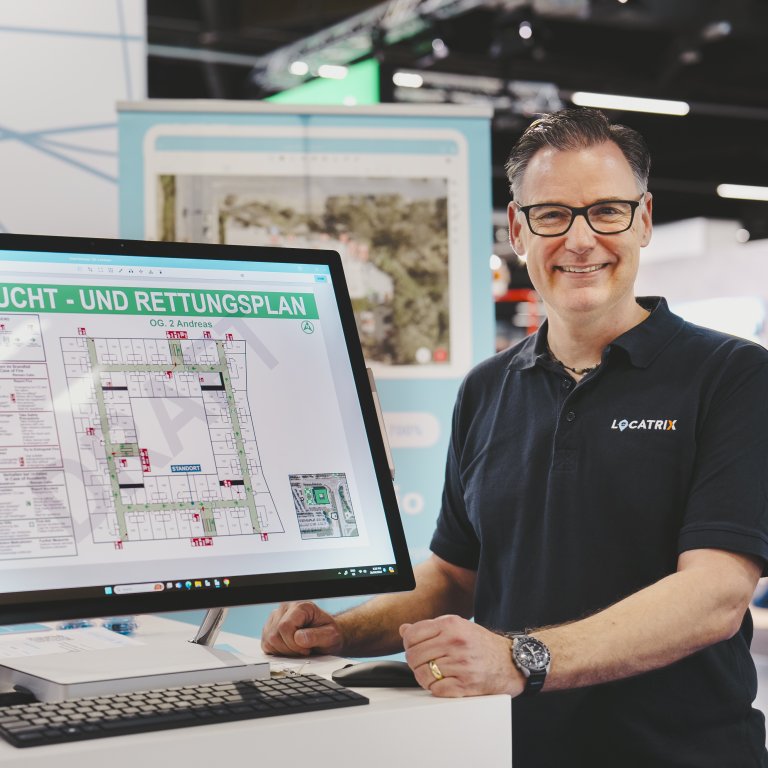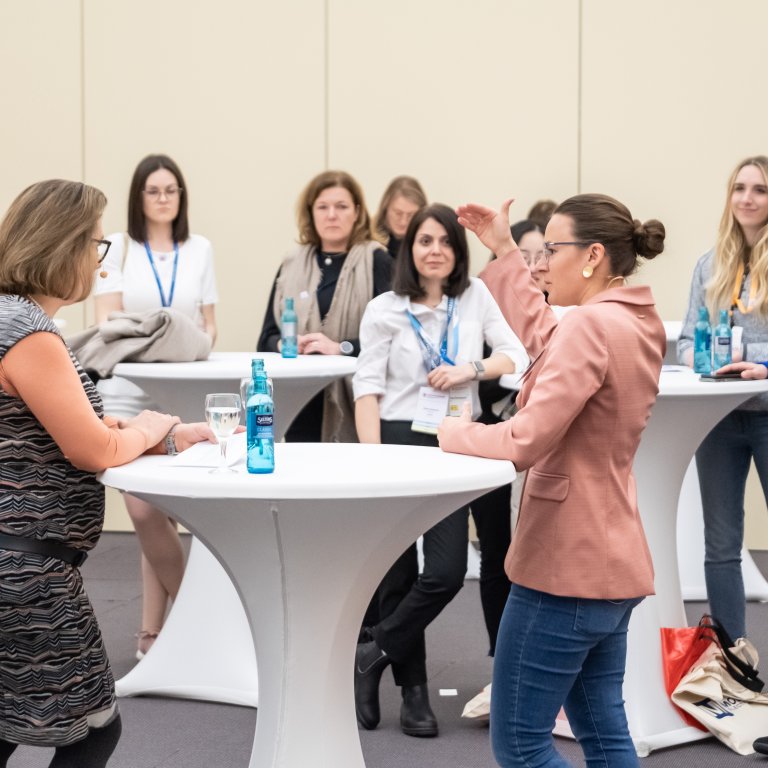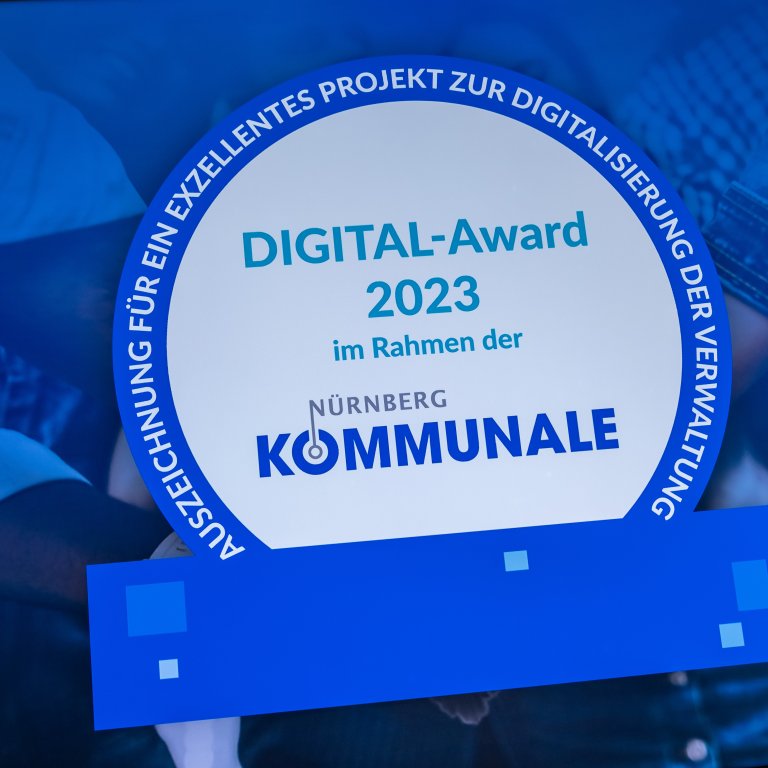- Coronavirus causes substantial slippage in exhibitors, visitors and exhibition space, with a two-third sales decrease from projections in 2020 to about €115 million, and a loss on the order of €50-60 million for the year
- Early, systematic savings on investments, personnel expenses and office costs cushion earnings decline caused by pandemic
- Sharp reduction in indirect profits generated by NürnbergMesse, with nationwide impact on buying power of €1.55 billion per year, according to ifo Institute; massive damage to economy owing to cancelled or postponed trade fairs
- Hopeful outlook for 2021: Positive response from customers and clear focus on digitalisation, internationalisation and sustainability
The coronavirus pandemic deeply marked NürnbergMesse’s 2020 fiscal year. Of the 86 trade fairs around the world that the company had planned for 2020, 65 had to be cancelled or postponed. The result was a decrease in the trade fairs’ key figures to about 12,400 exhibitors (2018 comparable year: 35,462), 429,500 visitors (1.5 million) and 360,900 square metres of net space (1.2 million). Thus NürnbergMesse sales were down to about €115 million (2018 comparable year: €315.1 million), with a net loss on the order of some €50-60 million (2018 comparable year: + €28 million profit). Thanks to fast management decisions, the exhibition company averted a considerably more negative result, said NürnbergMesse CEO Dr Roland Fleck: “We responded to the coronavirus crisis by systematically putting the brakes on costs. Shortening work schedules, postponing major investments at our exhibition venue, and reducing office costs enabled us to maintain our company’s crucial liquidity.” At the same time, the company pushed ahead with transforming its core business, and within a few months had developed digital formats for leading international trade shows like it‑sa, CHILLVENTA and BrauBeviale. “For NürnbergMesse, 2020 wasn’t just the year of COVID, but also a turbocharger for digitalisation. We accumulated a great deal of know-how in building up digital platforms, and thus surpassed ourselves in coping with the crisis. The new digital formats provide important bridges for our customers, and establish a meaningful complement for our in-person events,” added joint CEO Peter Ottmann.
NürnbergMesse acted early to allow for the potential economic consequences of the pandemic. It established a task force in the spring and launched major steps to cut personnel expenses and office costs, as well as to postpone major investments like the NCC Süd expansion. State-subsidised shortened work hours, which NürnbergMesse was the first German exhibition company to employ and was utilising for the first time in its history, safeguarded important liquidity for the company while averting layoffs. From 1 January to 31 December 2020, the staff at the Nuremberg site was reduced from 605 to 590 with measures that minimised employee hardship. Two-thirds of the staff in Nuremberg are currently working shortened work hours.
While the parent company in Nuremberg and many of its subsidiaries were held fast in the grip of the coronavirus, NürnbergMesse China achieved a successful restart with trade fairs and conferences in Shanghai. These yielded important information for hygiene and safety concepts in the exhibitions business as a whole. To be able to offer such important marketplaces for business in defiance of the pandemic, NürnbergMesse developed new digital platforms for its existing events in record time. On the date of the it-sa cybersecurity trade show in October, more than 3,600 participants from the IT security industry met in the digital “it‑sa 365” space. Likewise, experts in the medical sector, fire protection, heating and refrigeration technology, and beverage technology, as well as the hydrogen community, attended digital versions of events for their own fields: MedtecLIVE, FeuerTrutz, CHILLVENTA, BrauBeviale and HYDROGEN DIALOGUE. Thus in spite of the crisis, NürnbergMesse maintained close contact with its customers, generated new business, and built up valuable expertise in digitalisation.
The coronavirus pandemic interfered massively with NürnbergMesse’s function as an economic engine for its region. As an exhibition company whose primary shareholders are the Free State of Bavaria and the City of Nuremberg, the organisation is responsible for more than its own business performance and some 1,000 employees around the world. Current calculations by the ifo Institute for Economic Research indicate that the cancellation and postponement of numerous trade shows and conferences in Nuremberg last year sapped a total of €1.55 billion in buying power from all of Germany. In Bavaria alone, some 11,500 jobs are associated with the trade fairs at the Nuremberg site – at hotels, restaurants, caterers, exhibition construction companies and even taxi drivers.
On top of that, NürnbergMesse is currently making an important contribution towards combating the coronavirus pandemic in its home town. Last 27 December, the first physician from the city was inoculated against COVID at the vaccination centre in Hall 3C of the exhibition centre. NürnbergMesse had acted within days in response to a query from the city government, and has made its newest exhibition hall available for use as a vaccination centre until at least June 2021. The exhibition centre, with its up-to-date infrastructure and good location for transportation, offers the perfect conditions needed by a high-performance vaccination centre for a metropolis like Nuremberg.
As before, the basic situation for the exhibition industry in 2021 still depends on the evolution of the pandemic. NürnbergMesse is planning on holding its trade fairs and conferences as hybrid events, with digital expansions, until this summer. Registrations for these events are reassuringly high, and in some cases have even exceeded their pre-pandemic levels. In the first quarter of 2021, BIOFACH, the world’s leading trade fair for organic food, and VIVANESS will be held in purely digital form as an eSPECIAL from 17 – 19 February, and embedded world, the world’s leading trade fair for embedded systems technology, will take place digitally from 1 – 5 March. As digital formats, these events provide the requisite planning reliability for exhibitors and visitors, and help keep their industries networked.
In parallel, NürnbergMesse continues to pursue its path of internationalisation. The BIOFACH World has added another member in an international growth region: BIOFACH SAUDI ARABIA, in November 2021, will focus on the Arab and North African region, and address water scarcity and the use of fertilisers as its themes. In Europe, the NürnbergMesse Italia portfolio will add a second event of its own. The Italian subsidiary is currently developing a new event to address all aspects of non-conventional travel accommodations (sometimes called self-catering accommodations), like Airbnb. The new event will be held in Milan from 5 – 6 November 2021.
Along with digitalisation and internationalisation, sustainability is also becoming an ever greater focus for the exhibition industry. NürnbergMesse, for instance, has been working on its own ecological footprint for many years now. In parallel with the impact of coronavirus, the Franconian exhibition company will keep moving briskly ahead with its sustainability initiatives, and align its operations even more systematically with the United Nations’ Sustainable Development Goals (SDG). Here the company is aiming to become climate-neutral by 2028.
All in all, according to Dr Fleck and Mr Ottmann, the organisation’s strategic initiatives in digitalisation, internationalisation and sustainability are intended most of all to enable NürnbergMesse to remain on its success track in the post-pandemic era as well.





